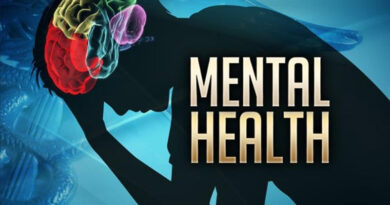Signs a Loved One Needs Professional Help
Asking for help regarding mental health issues is often a challenge for many. Previously, people didn’t take mental health seriously. However, that is not the case anymore, given how much more people know about neurobiology and the body’s response to chronic and acute stress and how that affects mental health.

Juggling daily tasks, managing emotions like fear and anxiety, and dealing with uncertainty affects everyone differently. The National Alliance on Mental Illness (NAMI) states that people should pay more attention to the health and emotional well-being of their loved ones than ever in recent years.
In the upcoming section, we will discuss the vital signs that may indicate the need to seek professional help and ways to support loved ones or yourself when in need.
- Personality Change
If you notice your loved one struggling with simple tasks considered a part of their value or identity, they might be suffering from a mental health issue and need professional help. For example, a person who was always seen as a workaholic might find it difficult to get dressed or commute to work.
Additionally, when they say or act in ways parallel to their personality, it shows that a change caused by an inexplicable crisis is taking its toll on that person’s life. For instance, a person struggling with depression will no longer be interested in activities they used to enjoy. If your loved one used to look forward to going out to dinner on the weekends or attending a child’s soccer game and now shows disinterest in such events, it may be a sign that you should seek professional help quickly.
- Sudden Fits of Hostility
Irritability is another common sign of a mental health issue. If your loved one is easily irritated, a minor incident can be enough to fuel anger, rage, and hostility in them. This is further evidenced by cursing, slamming doors, unintentionally breaking objects, having temper tantrums, etc. Mood disorder of this sort can negatively affect their studies, career, and relationships. It might also result in legal consequences.
So, if you find your loved one exhibiting mood disorders, consider it a tell-tale sign that they need professional help at the earliest.
- Withdrawal
Social withdrawal is a common sign of depression. When a loved one is clinically depressed, they might feel an intense urge to pull away from social interaction and prefer to be alone, when in fact, it is the exact opposite of what’s needed.
Social isolation can worsen the mental illness and how a person feels. It also amplifies the brain’s stress response, while social contact helps manage it.
If your loved one is retreating from friends or isolating themselves during work hours, consider reaching out to them. Try to take them out for activities or hold get-togethers with other people they know. If nothing works out, seek professional help.
- Poor Self-Care
Low self-esteem is when your loved one lacks confidence in their identity and capabilities. As a result, they often feel incompetent, unloved, and inadequate. People struggling with low self-esteem are consistently afraid of making mistakes or letting others down.
In such a situation, they might also start exhibiting reckless behavior alongside a change in how they maintain their image or personal hygiene. For instance, a person with poor self-care might start binge drinking, overeating, not bathing regularly, etc. If you notice these signs, know that it is high time they seek professional help.
- Hopelessness
Any self-loathing, pain-inflicting and hurtful behavior is a tell-tale sign of extreme hopelessness. It affects the way a person feels about life in general. Other feelings may include worthlessness or inappropriate guilt. They might vocalize common and frequent thoughts of depression as “It’s all my fault.” or “What’s the point?”
Having a helpless outlook on your life frequently could gravitate to depression. If not handled properly, suicide could be imminent. To handle cases of extreme hopelessness, self-loathing, and depression, seek out and employ drug addiction intervention strategies to make a meaningful and long-term impact.
Get Help Before It’s Too Late
You can take efficient steps to help a loved one suffering from a mental health issue by suggesting professional help, such as an online support group or a licensed therapist. Additionally, care for them by making a meal or picking up groceries, calling, checking in daily during distress, researching support networks, offering to call their workplace with them, or helping with paperwork if they need leave. The key is to remind them that they are important and loved.



